What do I do if my cast iron pan starts to rust? Cooking with a cast iron pan is a long-standing tradition, but rust can be a problem. Is it still safe to use for cooking?
The answer is not straightforward. On one hand, rust can affect the flavor and texture of your food. On the other hand, it’s possible that some of the nutrients from the rust can leach into your food in trace amounts. In this article, we will explore the steps to take when dealing with a cast iron pan that has rust. During our discussion, we will address the safety of cooking with a rusty cast iron pan and provide tips on how to effectively clean and maintain it to prevent future rusting.
Can You Cook in a Rusted Cast Iron Pan?
Yes, you can cook with a cast iron pan that is rusty. It is essential to ensure that the rust is not coming off into your food. If the rust seems to be on the surface of the pan only and not coming off into your food while cooking, then it should be safe to use. If there is a significant amount of rust flaking off into your food, then it’s best to replace the pan.
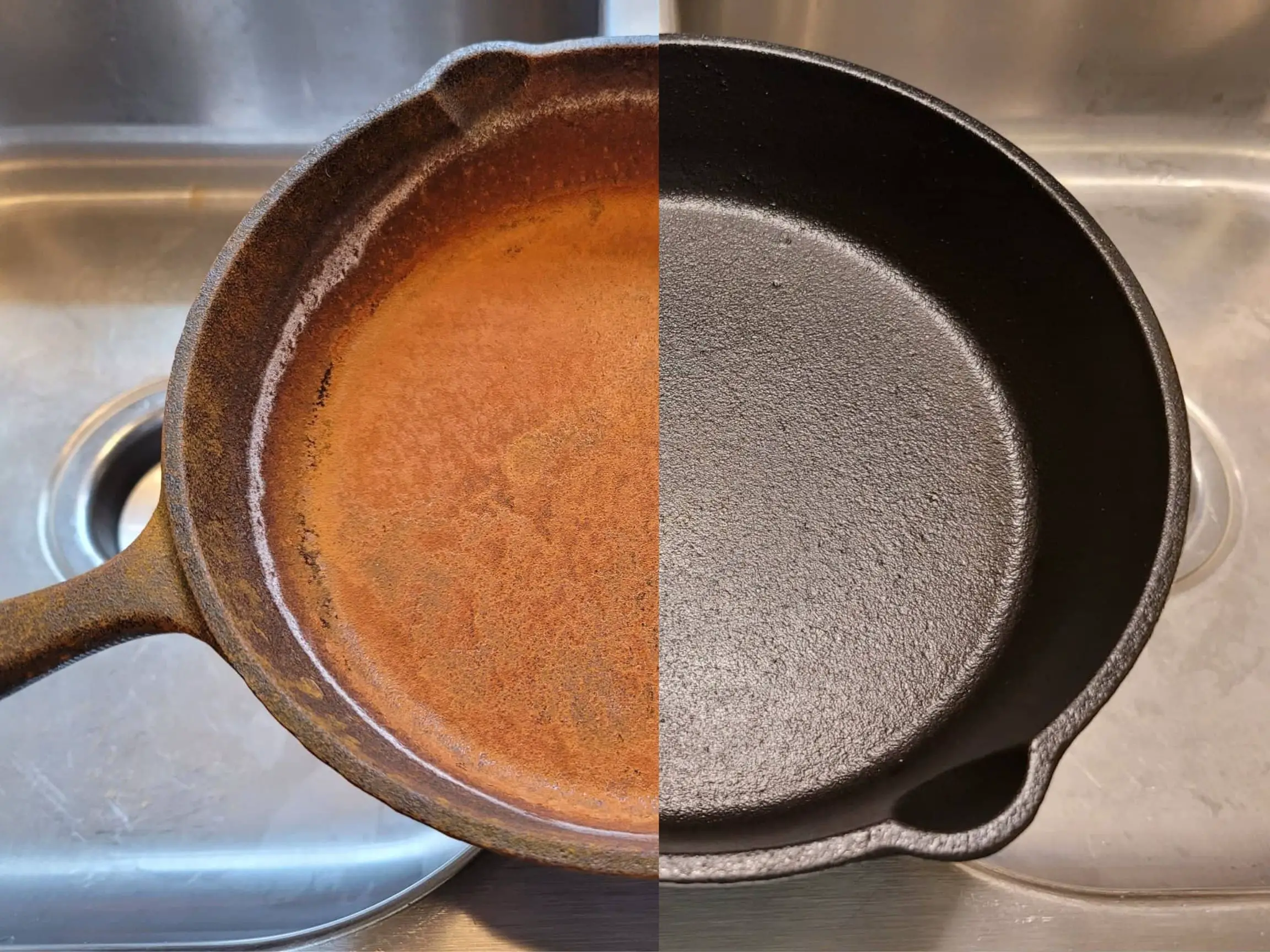
Remember that cooking in a cast iron pan that has rust can alter the taste and consistency of your food. Rust can give an off taste to foods, so you may want to be mindful when seasoning if you’re using a rusty pan.
Benefits of Cooking in a Cast Iron Skillet
Cast iron skillets have several advantages when they are not rusty, which make them an excellent option for cooking. They are:
- Long lasting – Cast iron pans can last for generations and are often passed down through families as heirlooms.
- Heat retention – Due to the heavy weight of these pans, they retain heat well, making them great for searing meats and vegetables.
- Versatile – Cast iron skillets are very versatile and can be used to cook on a stovetop, in an oven, or even over a campfire. [1]
Drawbacks of Cooking With a Rusty Cast Iron Pan
Cooking in a rusty cast iron pan is possible, but it has some disadvantages. Rust on the pan can cause your food to have a metallic taste, which can be unpleasant. The rust flakes can also get into your food and be ingested, which is not desirable or safe. Furthermore, if you cook with a rusty cast iron pan, the rust can peel off and taint other dishes in your kitchen.
Cooking in a rusty cast iron pan can make it challenging to prevent food from sticking to the surface. This is because of the uneven surface of the rust, which makes it harder for oil or butter to spread evenly across the pan. As a result, it can be difficult to cook food evenly and achieve the desired texture.
Finally, because of the rust on the pan, you may have to use more oil or butter than usual in order to prevent sticking. This can lead to greasy dishes that are high in fat and calories. Using a rusty cast iron pan is not a healthy choice for cooking if you want to maintain a nutritious diet. [2]
Is Rust on Cast Iron Pans Dangerous?
Using a rusty cast iron pan is generally safe and won’t harm your food, even though it may not be the most ideal choice for cooking. Although rust on cast iron pans may not pose a direct threat to your health, it can affect the performance of the pan.
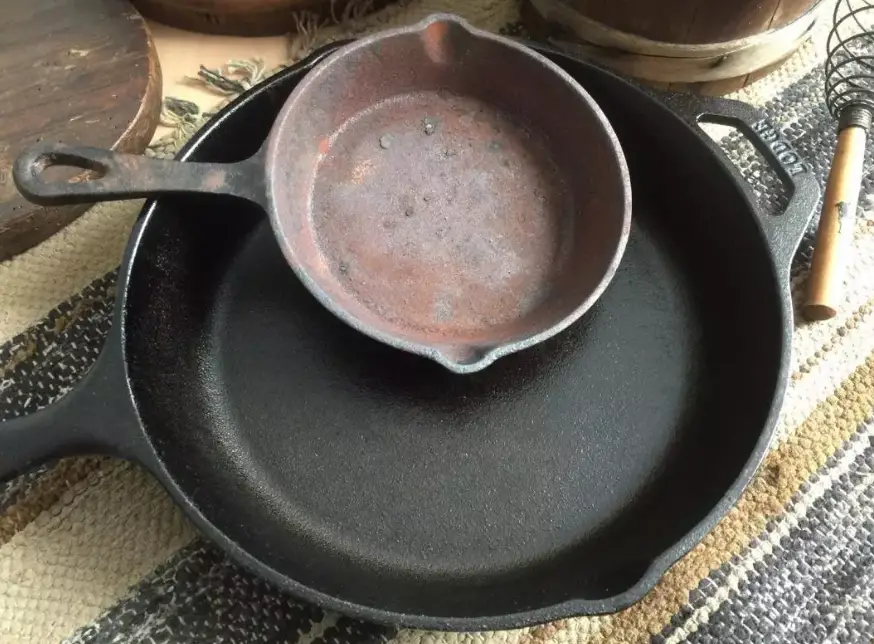
If there are only small amounts of rust on your pan, it won’t have much effect on the food you’re cooking. Some people even purposely add a thin layer of rust to their cast iron pans in order to increase its non-stick capabilities.
However, if there are large amounts of rust on your pan, cooking with it could be dangerous. If the rust flakes off during cooking, it could contaminate your food and make you sick. Additionally, rust can impair the non-stick capabilities of the pan and cause food to stick or burn.
If there are only small amounts of rust, then it can be removed through proper care and maintenance.
To get rid of rust on a cast iron pan, scrub the affected area with steel wool or fine-grit sandpaper. Then season the pan with oil after each use to keep it in good condition.
Why Do Cast Iron Pans Become Rusty?
Cast iron pans often become rusty due to a combination of moisture and air. When the metal in your pan is exposed to both humidity and oxygen, it can rust. This occurs because when iron interacts with water molecules, it creates an oxidation reaction that breaks down the metal surface into rust particles. Cast pans are more likely to become rusty when they are exposed to moisture and air for a longer period of time. To prevent rust from forming on your pan, you should make sure to keep it clean and dry after each use.
Additionally, if the seasoning on your pan has worn off, you should re-season it with oil in order to protect it from further damage. [3]
How Fast Do Cast Iron Pans Rust?
If cast iron pans are not given proper maintenance and are exposed to the elements, they tend to rust at a faster pace. A cast iron pan can begin to show signs of rust within a few weeks or months if left unwashed, unseasoned and unused. Regularly washing and seasoning your cast iron pan can slow down the rusting process. To prevent rust, it’s important to thoroughly dry the pan after use.
If you see rust on your cast iron pan, don’t worry. You can fix the damage and stop it from getting worse.
To clean the pan, wash it with hot soapy water, remove any rust using a wire brush or steel wool, make sure to dry it completely, and then re-season the surface.
How To Remove Rust From a Cast Iron Pan
You can restore a rusty cast iron pan to its former glory with simple steps. To begin, use steel wool or an abrasive pad to scrub the pan and remove any large chunks of rust. Make sure to use gentle pressure when scrubbing so that you don’t damage the pan.
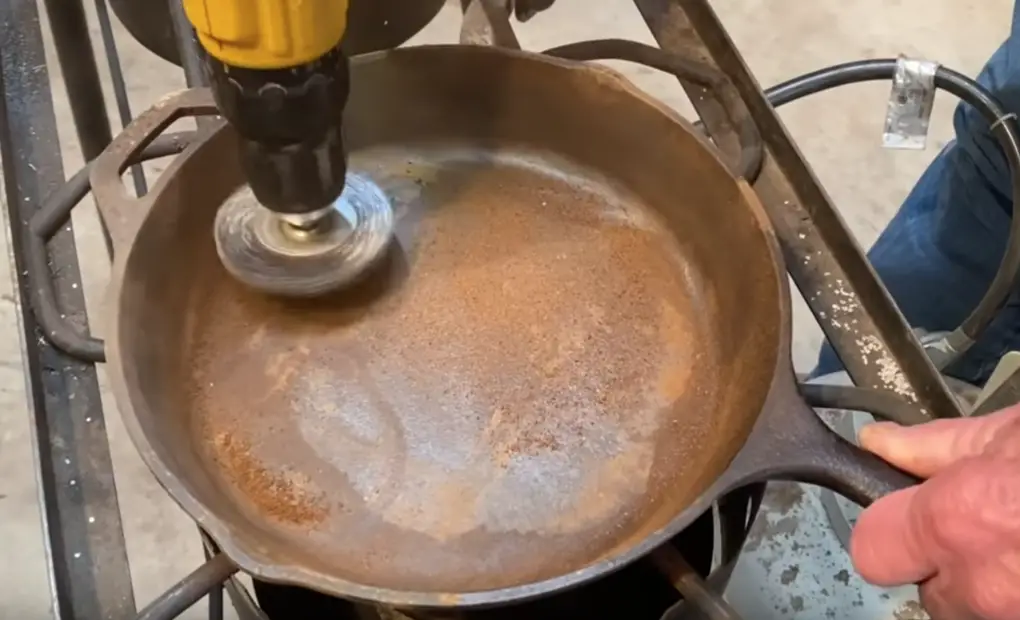
Next, fill the pan with water and add a few tablespoons of baking soda or household vinegar. Allow the mixture to rest for approximately 30 minutes to enhance its ability to remove any remaining rust. Next, use steel wool or an abrasive pad to remove any remaining rust. After applying the cleaning solution, rinse it off and use a scrub to eliminate any remaining particles.
To finish, make sure you dry the pan completely and then apply a thin layer of vegetable oil all over it. This will help to protect the pan from further rusting. Now your cast iron pan is ready to use! Just remember to season it regularly (by baking in some vegetable oil) and never put it in the dishwasher, as this can cause rusting over time. [4]
Tips for Preventing Your Cast Iron Pan From Rusting
- Make sure you wash your pan with hot water and a stiff wire brush or scrubbing pad after each use.
- After washing the pan, make sure to dry it right away and apply a thin layer of oil to prevent rust.
- Store your cast iron cookware in a dry place to avoid moisture.
- If your pan does develop rust spots, you can remove them by scrubbing the pan with steel wool or fine sandpaper and then washing it with hot water.
- To prevent rusting, make sure to season your cast iron cookware on a regular basis. Seasoning involves coating the pan in oil and baking it in the oven.
To maintain your cast iron cookware and prevent rust, follow these tips and enjoy cooking with it for many years. Just remember, if your pan does get rusty, it’s not necessarily unsafe to cook with. You just need to take some extra precautions to ensure your food is safe. Now that you have learned the method to prevent rust on your cast iron cookware, feel free to use it for cooking!
Can You Get Tetanus From Food Cooked in a Rusty Cast Iron Pan?
While cooking with a rusty cast iron pan is generally safe, there is still a possibility of tetanus. Tetanus is an infection caused by a bacteria called Clostridium tetani which thrives in warm, moist environments like soil and dust.
Although it is technically possible to contract tetanus from food cooked in a cast iron pan with rust, the likelihood of this happening is low.
Clostridium tetani is killed by heat and dryness, so thoroughly cooking the food in a rusty pan should make it safe to eat.
Keeping your kitchen clean and sanitized is crucial in preventing contamination, irrespective of whether or not the cookware displays signs of rust.
Although it is safe to use a rusty cast iron pan for cooking, it is crucial to follow the appropriate measures to avoid rust formation in the future. To prevent rust, wash the pan by hand with warm water and ensure it is fully dried after each use. It may also be necessary to season your pan regularly with oil or shortening to protect it from rust. To maintain a safe and healthy cooking environment, follow these steps. [5]
FAQ
What happens if you cook on rusty cast iron?
Using a rusted cast iron pan for cooking is risky and may result in consuming harmful bacteria and particles. Rust can also give off an unpleasant metallic taste that will ruin the flavor of your food.
It’s best to avoid cooking with a rusty pan unless you have thoroughly cleaned it and removed any rust build-up. Additionally, if the pan is too rusty, it may be time to discard the pan and replace it with a newer one.
Is it safe to cook in cast iron all the time?
The answer is yes and no. As long as the rust has not caused severe pitting on the metal, cooking in a rusty cast iron pan is generally safe. However, it is best to clean and season your pan after every use to ensure that food cooked in it does not taste metallic or sour. Additionally, if there are any deep pits or cracks in the metal, it is best to discard the pan and get a new one.
Finally, it’s important to keep in mind that while cooking with a rusty cast iron pan may be safe, it won’t season the pan as effectively as cleaning and seasoning it after every use.
Should I throw away rusted pans?
Sorry, the answer is negative. Discover the key to a long-lasting and dependable kitchen companion: the cast iron pan. With proper care, it can easily be passed down from generation to generation.
Don’t let a little rust discourage you though. Simply remove it completely before using. Remember, rust is caused by moisture exposure. So, always dry your cast iron pan thoroughly after washing to keep it in tip-top shape. Learn how to revive your rusted cast iron pan with ease. Simply scrub the rusted areas with stiff brush and steel wool to restore the pan to its former glory.
After removing the rust, it’s time to season your pan to prevent future rust build-up and improve its flavor and ease of cleaning. To do this, apply a thin layer of oil all over the pan and bake it in your oven at 350°F for an hour. Enjoy cooking safely and comfortably with your newly revived pan! This process should be done regularly to maintain rust-free cooking. When it comes to rust, prevention is the best approach.
How do you remove rust from cast iron?
Don’t panic if you notice rust in your cast iron pan. It is not a cause for major concern. To remove it, follow these easy steps:
- Before you start cleaning the pan, ensure that it is completely dry. If there are wet spots, dry them off with a cloth or paper towel.
- Sprinkle some coarse salt over the rusty area and scrub with a stiff brush. For tougher spots, you can use steel wool or a metal scouring pad.
- After cleaning the pan, make sure to rinse it thoroughly to get rid of any remaining rust particles. Once done, dry the pan completely.
- Apply a thin layer of cooking oil to the whole surface of the piece, including the rusty area. Applying this will help prevent rusting in the future.
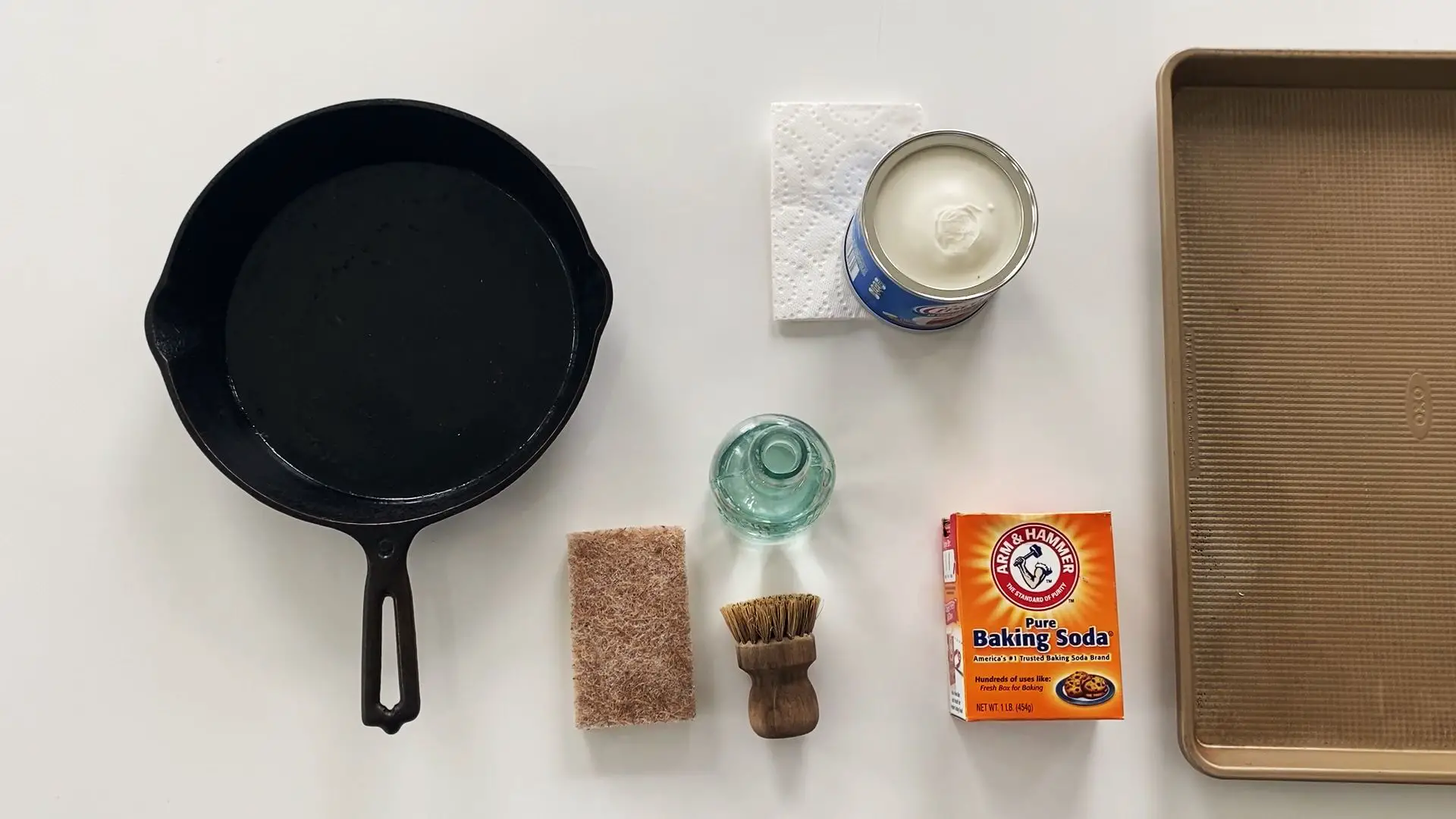
Do I need to remove rust from cast iron?
Before cooking on your cast iron pan, make sure to remove any rust that you might see. Rust is an oxidation of the metal and can cause off flavors or potentially dangerous toxins in your food.
Removing rust from a cast iron pan is easy with these simple steps. Begin by scraping off any large pieces with a stiff brush or steel wool. Next, soak the pan in a solution of 1 part white vinegar and 3 parts water for 30 minutes. After soaking, scrub with a stiff brush or steel wool to remove any residual rust. Rinse thoroughly and dry your cast iron before cooking. Your pan will be like new in no time! Protect your cast iron and keep rust at bay!
After cleaning, season it to prevent oxidation from reoccurring. You don’t have to remove rust, but be sure to inspect your pan for any damage before using. As long as the cooking surface is in good condition, your meals will be safe and delicious.
Does heat remove rust from cast iron?
Heat is an effective method for removing rust from a cast iron pan. The high temperatures of the oven or stovetop will help reduce the presence of rust by loosening its grip on the metal surface. It is important to note that this won’t completely remove all traces of rust and you may still see a few spots after heating. Your rusty cast iron pan can be safely used for cooking as long as most of the rust has been removed.
After removing rust through heating, it’s crucial to season your cast iron and maintain it well to prevent future issues. Proper seasoning creates a non-stick surface, preventing the formation of rust in the future.
When should I replace my cast-iron pan?
Monitoring the condition of cast iron pans while cooking in them is crucial. If you notice deep cracks or rust spots on your pan, replace it because these can contain harmful bacteria that could be dangerous if consumed. Using oil to “season” a cast-iron pan for safety reasons is not recommended despite the belief held by some people. The best course of action would be to dispose of the pan safely and buy a new one.
In addition, you may need to replace your cast iron pan if it has become warped or chipped. Uneven cooking and potential danger can result from the presence of these issues in food.
Additionally, if there are any signs of wear on the handle or the surface of the pan, it may be time to consider investing in a new one.
What is the healthiest pan to cook with?
Cast iron is a great choice for cookware if you’re looking for something healthy. The pan has been in use for centuries and is popular for being long-lasting and its capacity to distribute heat equally.
Cast iron also has the advantage of being non-toxic, as opposed to other materials like aluminum or steel that can leach chemicals into your food.
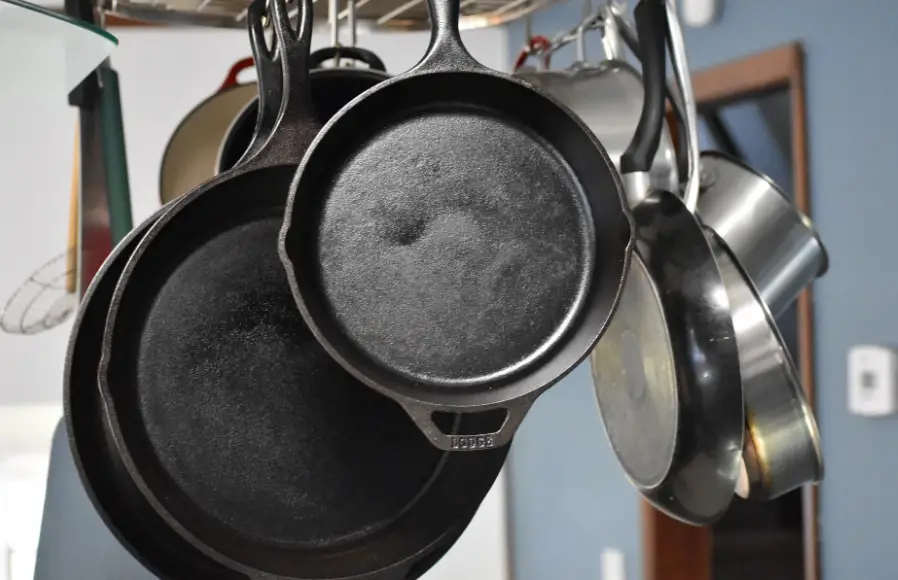
Additionally, it’s naturally nonstick and doesn’t require the use of additional cooking oils or fats.
That said, cast iron can become rusty over time if not taken care of properly. While some people may be tempted to keep using a rusty pan, this should generally be avoided as a health precaution. Rust is a form of iron oxide, which can be toxic and may contaminate food if ingested.
Should you clean cast iron after every use?
After using a cast iron pan for cooking, it is crucial to clean it thoroughly. Using this method will stop rust from forming on the metal and avoid oxidation affecting the flavor of the food. For proper cleaning of a cast iron pan, use warm water and dish soap to scrub it. It is not recommended to use bleach or any other harsh cleaners. After you are done scrubbing the pan, make sure to dry it and apply cooking oil to form a protective layer that can prevent rust from forming. In case the pan is still rusty after cleaning, it is recommended to try using steel wool or a mixture of baking soda and water for scrubbing before seasoning it again.
Do chefs prefer cast iron?
Chefs around the world have been using cast iron pans for centuries. It’s one of the oldest materials used to cook with and it’s still going strong! Cast iron is known for its superior heat retention, durability, and non-stick surface when properly seasoned. Not only that, but it’s naturally non-toxic and doesn’t contain any PFOA or PTFE, unlike some other non-stick cookware. As a result, many chefs and home cooks prefer cooking with cast iron over other materials like stainless steel, aluminum, and others.
Useful Video: How to Season a Rusty Cast Iron Skillet | How to Fix, Clean and Restore Cast Iron
Conclusion
If the damage caused by rust in your cast iron pan is extensive, you may want to replace it, even though it is generally safe to keep using a rusty cast iron pan. In the end, your decision should come down to how much time and effort you are willing to invest in restoring the pan or whether you would rather purchase a new one.
If you do decide to keep the pan, be sure to take proper care and maintenance steps to prevent it from rusting again. Clean it immediately after use, season it well with oil, and store it in a dry place. If you take the time to be patient and handle it carefully, your cast iron pan that has rust on it can give you many years of tasty dishes.
References
- https://worldofpans.com/cook-in-rusty-cast-iron-pan/
- https://kitchenoa.com/is-it-safe-to-cook-in-a-rusty-cast-iron-pan/
- https://fryingpro.com/can-you-cook-in-a-cast-iron-skillet-with-rust/
- https://www.wideopencountry.com/lodge-cast-irons-technique-for-restoring-a-rusty-skillet/
- https://fieldcompany.com/pages/how-to-remove-rust-from-a-cast-iron-skillet

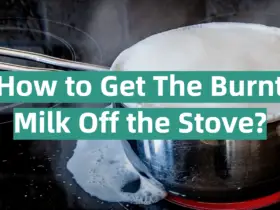

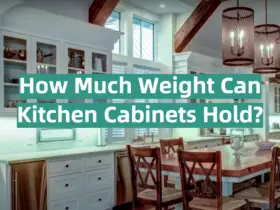
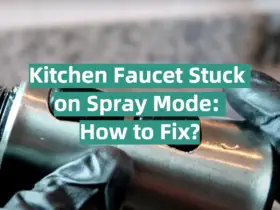
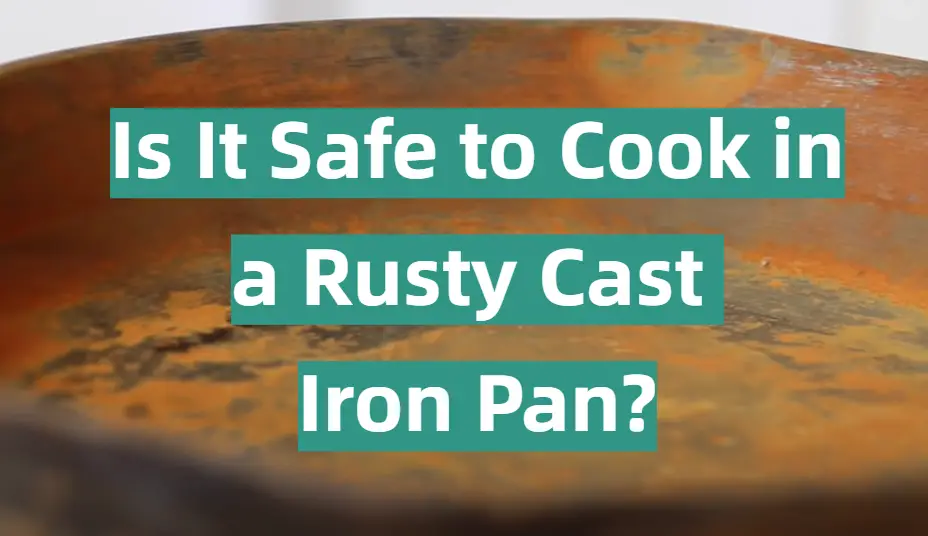
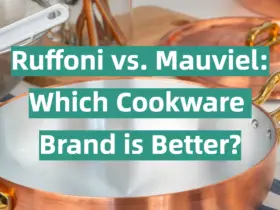
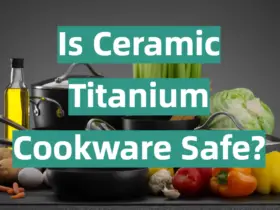
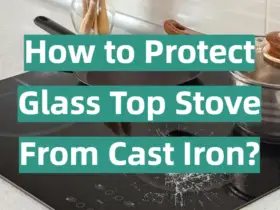
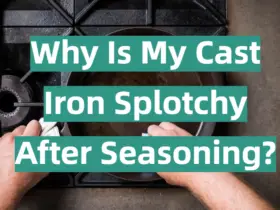
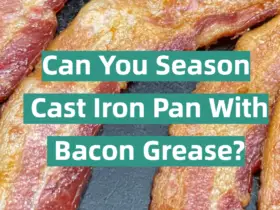
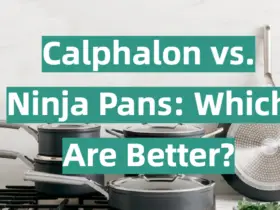
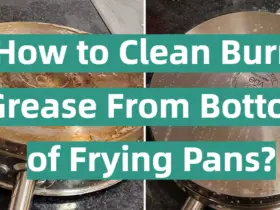
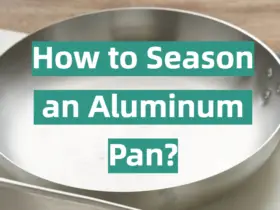
Leave a Reply